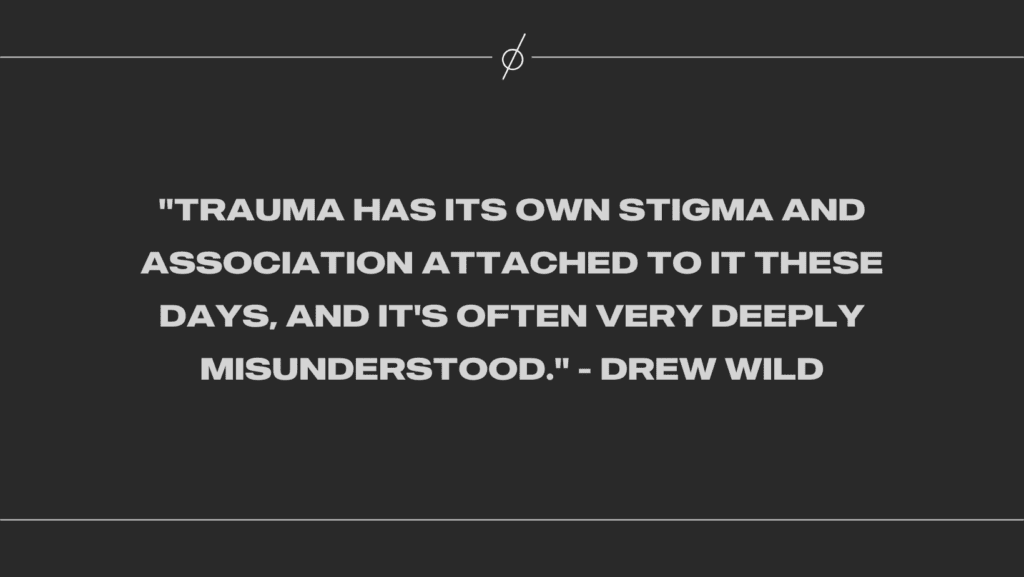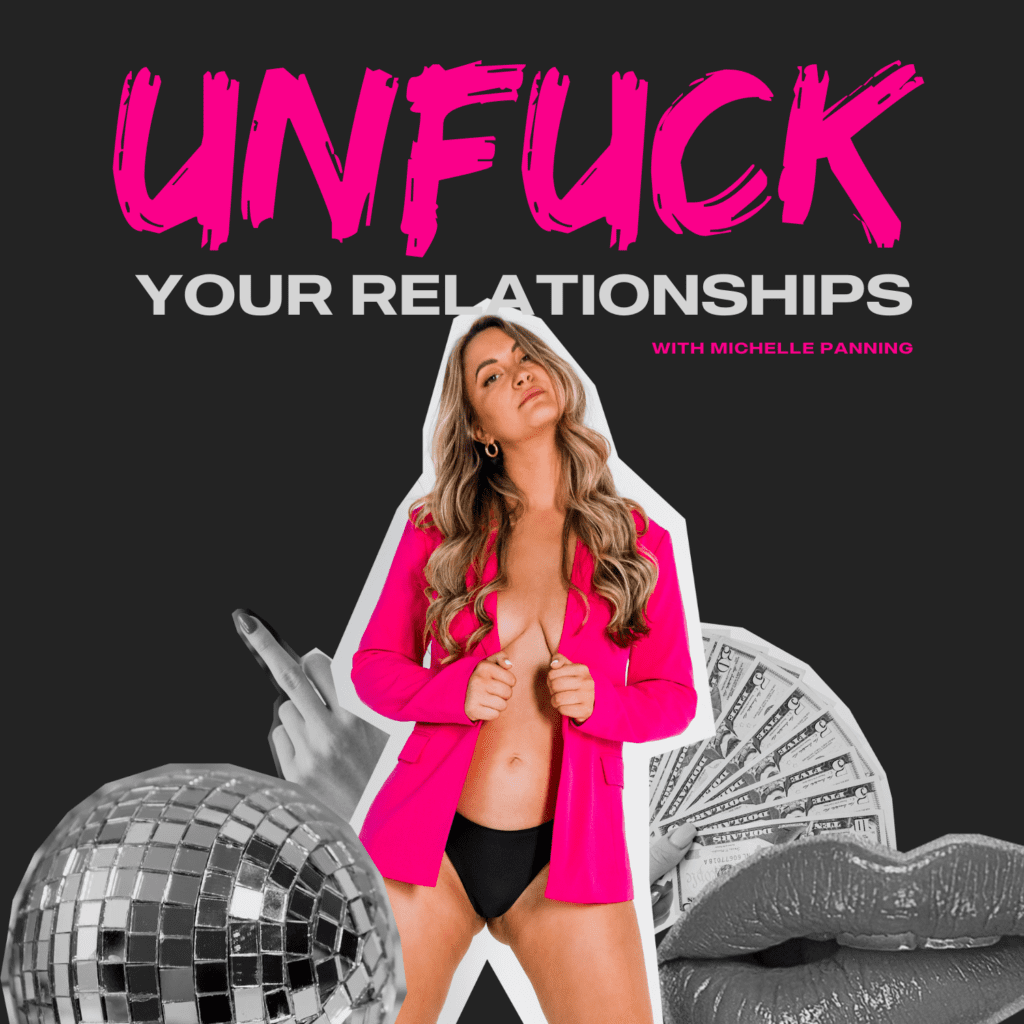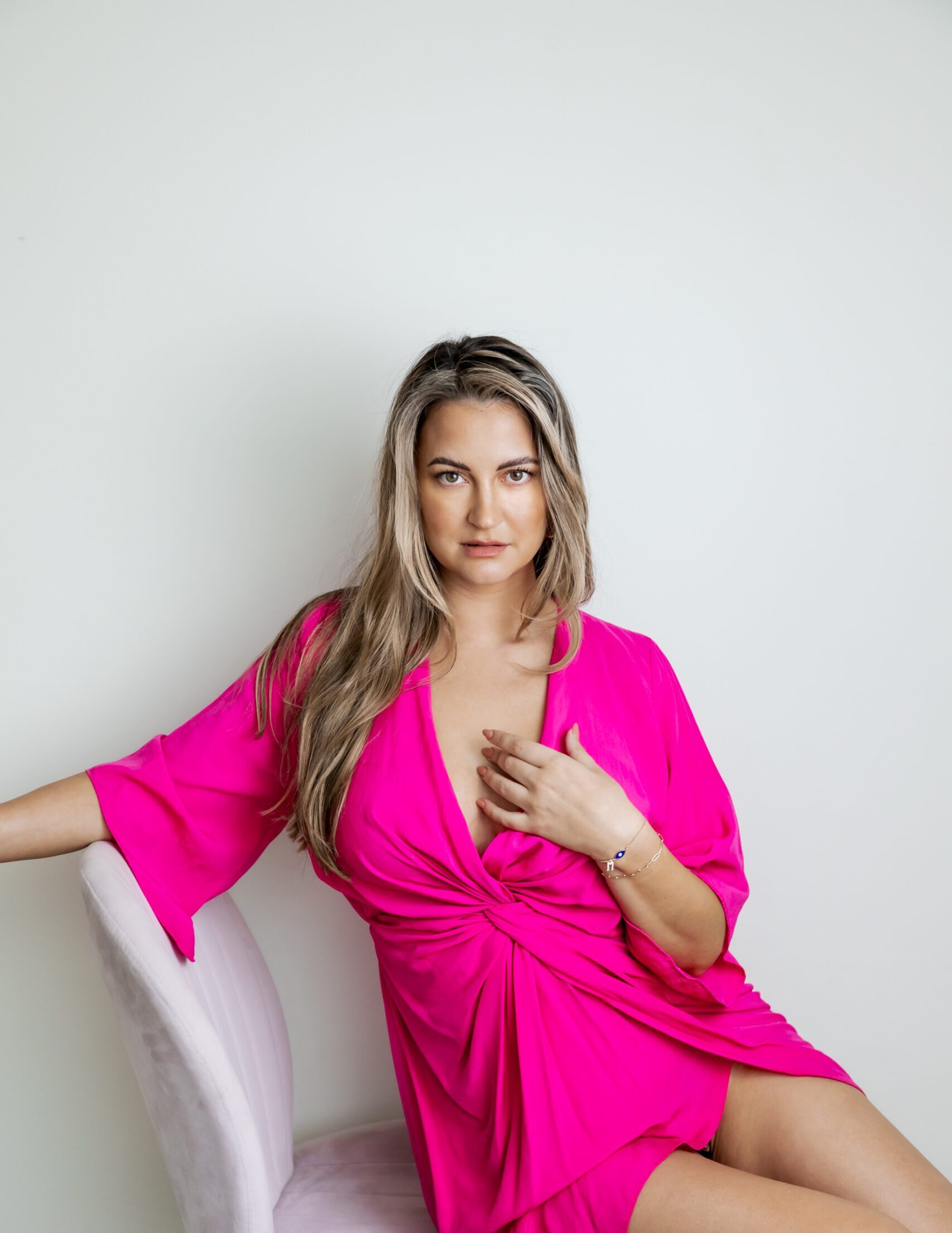Our Drugs of Choice: A Discussion About Addiction and Shadow Work feat. Drew Wild
January 22, 2024
Hello, my loves.
Here in UFYR Land, we are launching The Connected Woman right now, which means we’re talking a lot about shadow work in relationships.
Through this, I was having a conversation with a client recently about her judgment around people with addictions, and I lovingly pointed out that her obsession with her partner and her relationship is her addiction. She holds a lot of judgment around addicts, but she happens to be one herself, if a much different vice.
She was mindblown. And I think a lot of people are when they hear something like that, because when people hear addiction, their first thought is usually drugs and alcohol or something like gambling. But the truth is, we all have our vices.
We all have our different drugs…which is why I’m once again thrilled to introduce Drew Wild, my partner, who’s here today to talk about addiction…including addictions in relationships.

Say Hi, Drew!
Michelle: I know you are so famous and everybody knows you, Drew, but for those who don’t, introduce yourself!
Drew: For those who haven’t heard or read my discussions with Michelle before, my name is Drew Wild. I work as a trauma specialist and an addiction coach.
On the outside, if you went and visited my Instagram, you would mainly see a platform that is very addiction-centric. However, the reality is that roughly 85% of my clients are actually women, and most of them are in some form of or are exiting codependent relationships, and they usually stumble across my page because they’re looking for some sort of support for their partners that are trapped in substance abuse behaviors or addictions.
However, these women often end up recognizing that there’s actually lot of work that they can do on themselves, given the dynamic that’s been created between themselves and their partner or ex-partner. They often start to realize quite quickly that they were in some form of toxic and codependent relationship.
So a lot of the work that I do focuses around addiction, but underneath addiction is always trauma.
There’s a lot of stigma attached to both the words “trauma” and “addiction,” addiction especially. As Michelle said, most people’s thoughts go straight to drugs and alcohol. But the reality is, everybody on this planet who has been completely, fully honest with themselves likely has some kind of addiction.
We all have distractions. We all have coping mechanisms.
I believe addiction and distraction are synonymous. We all have our own version of escape, our own form of numbing or pacification or self-soothing.
Really, that’s all anybody is looking for when they reach for whatever their particular vice is: distraction, numbing, or self-soothing. And sometimes, people even fill that hole with another person, which is where you end up with codependency.
Different Vices
Michelle: What stuck out to me just now is that you said women come to see you because they’re looking for ways to support their partners with their addiction struggles. And I would imagine that their partner’s work is a convenient distraction from their own work, right?
It’s much easier for them to focus on their partner and their drugs and their alcohol and their gambling and pursue ways to help them, but when you start talking to them, they come to realize that they’re also an addict—they just have different vices.
Drew: Exactly. This is usually how it goes down: they’ll reach out to me and go, “Hey, what can I do to help my husband, my partner, etcetera?”
The short answer I have for most people, whether it’s a mother, a father, a daughter, a partner, or whatever it might be is that they can’t do anything.
That’s a bit of a blanket statement, but it’s also the truth. Addicts need to want to change in order to change; they have to want to do something about their problem.
So it depends. If they come to me and they’re talking specifically about a partner, I’ll first tell them that there’s nothing they can do for them, really, because they have to want it. But secondly, if I feel that they’re open-minded enough to receive a bit of feedback, I might add that something they can personally do is go educate themselves about addiction.
Go and understand addiction to its depths. Go and understand why this person is behaving in the way that they are. Because unlike many people think, they’re not a bad person—they’re not a fuck-up, there’s not a moral failing, nothing like that.
Instead, this person is doing the best they can with the resources they have. It’s just gotten to a point where they’re caught in a very extreme maladaptive survival pattern, and it’s creating a lot of chaos in their lives.
And if I feel they’re open and receptive, I’ll ask them this: “What is the part that you’re playing that is creating this bond in this relationship and your reluctance to leave and walk out the door?”
And they often go, “Oh, fuck. What do you mean? I can’t possibly be influencing this. I’m the problem? No, no, no, no, no. That’s not what I’m here to talk about. I’m here to talk about my partner, remember?”
From there, if I’m brave enough and I feel they’re open and receptive enough, I’ll say, “Hey, what do you actually get out of the dynamic of your relationship?”
And on the surface, they think, “Well, I get fucking nothing. This motherfucker isn’t present, he’s constantly drinking, or he’s wasted, or he’s gambling, or he’s never with the kids, he’s always at work,” whatever the thing is. And I say, “Well, maybe, but what role do you play in the dynamic of this relationship?”
And if they have a willingness to sort of self-explore, I’ll ask a few more questions, and they’ll slowly get to the point of, “Fuck, I’m the enabler,” or “I’m the rescuer,” or “I’m the caretaker,” or “My pattern is to take in the bird with the broken feather. I thought I could make it all better, and I thought I could fix them. I took on a project.”
I can then ask where else that pattern shows up, and that’s where we get to the depth and the core of codependency.

The Shadowy Side of the Caretaker
Michelle: The Caretaker is actually one of the shadow archetypes that we explore in The Connected Woman.
You might think, “What? A shadow archetype? Isn’t caretaking a positive thing?”
Here’s the deal: when someone’s in that caretaker role or martyr role, there’s often this energy of superiority.
“Look at me. I’m so noble. I’m so selfless. I’m just giving everything I have for this person, and I’m getting nothing in return. I’m practically Mother Teresa.”
The reality is…not at all. You’re actually doing that in order to get something back, whether that’s love, validation, attention, self-worth, etcetera.
One of the characteristics of the caretaker and the martyr—and this is all unconscious, right?—is, “I’m going to make you so fucking reliant on me that you never leave me.”
When I tell people that, they often respond the same way: with denial. They insist they aren’t doing that…but they are, just unconsciously. That’s why we go into it through a lens of shadow work in Connected Woman.
These are the people who are complaining and saying, “My partner never does anything for themselves. I have to pick up all the slack. I have to carry the relationship. I have to do all the physical, emotional, and mental labor in this relationship.”
But the truth is…you directly benefit from that somehow. So what do you get by staying committed to that pattern?
Drew: Consciously, they’ll hate it. Unconsciously, they fucking love it.

Join the Summit!
Michelle: The whole talk Drew and I had about addiction and shadow work and trauma won’t fit in one blog post, but there is a tooon more juicy shit waiting in there, so be sure to head over to Episode 132 of the Unf*ck Your Relationships podcast to hear the whole thing.
If any of this resonates with you or challenges you, you’re gonna want to watch out for the summit Drew’s going to be hosting soon.
This summit is a monumental event that has been over six months in the making called The Addiction Collective. It’s going to be a three-day online addiction and sobriety summit, and it’s going to be fucking incredible.
They have over forty-four confirmed speakers, a number of whom are speaking directly towards codependency. They will be covering all aspects of addiction, so you want to be there if any of this hit you.
You also want to get into Shadow Hunter, a multi-day free event I’m hosting that is focused entirely on shadow work. You don’t have to attend live. All the replays are going to be there, so don’t panic if you can’t be there right at the time it’s happening. Just sign up.
In this shadow work event, we’re going to be diving into what the fuck shadow work actually is. We’re going to be diving into shame, limitations, what to expect on your shadow work journey, what the transformation is going to be like with shadow work, all the things.
And afterward, if you’re like, “Fuck it. Sign me up for this shadow work journey,” then The Connected Woman is going to be starting at the beginning of February, and you can jump right in there.
The way I view shadow work is that I don’t want it to be this fucking seventeen-million step process where you need to sit in your journal for six hours every day and meditate on a fucking mountain with a sound bath and whatever.
The way I do shadow work, it’s simple. It’s direct. It’s potent. It’s to the point, and it’s embodied.
That is how I do shadow work, because I want you to be able to go out into the rest of your life and see things from a shadow work perspective without having to fucking journal on it—instead, you’ll be able to clock it immediately.
My favorite mantra that I came up with is “Clock it, own it, clean it up.” That’s how I believe shadow work should go.
So sign up for Shadow Hunter. Click through to Drew’s summit page using the link below. Head to Instagram and follow Drew and I both to stay connected and see the work he’s doing. And if anyone’s got any questions about the stuff he’s brought up, if any of it is resonating with you, send him a DM. He’ll send you in the right direction.
In the meantime, I’ll see you in Shadow Hunter to get started on your shadow work journey.
WORK WITH MICHELLE:
Sign up for Shadow Hunter, a FREE 3-day event all about WTF shadow work actually is, how to do it, and how it’s going to completely change the way you do relationships forever: https://michellepanning.thrivecart.com/shadow-hunter/
Join The Connected Woman EXPERIENCE: https://michellepanning.com/the-connected-woman-experience
Sign up for The Connected Woman course: https://michellepanning.com/the-connected-woman
CONNECT WITH MICHELLE:
Instagram: http://www.instagram.com/michellepanning
Website: http://www.michellepanning.com
WORK WITH DREW:
Sign up for THE ADDICTION COLLECTIVE, a three-day summit focusing on ALL kinds of addiction: https://theaddictioncollective.com/
CONNECT WITH DREW:
Follow Drew on Instagram: https://www.instagram.com/drew_wild/

Our Drugs of Choice: A Discussion About Addiction and Shadow Work feat. Drew Wild
MINDSET & EMBODIMENT MENTOR
I'm Michelle
about the host
I get it, girl. I’ve been there too. For years, I was going through the same experiences with men over and over again that left me feeling confused, anxious and pissed off.
I silenced myself in dating and relationships because I was terrified of being judged, rejected and abandoned. It all changed when I went through a break-up and thought “enough is enough. I cannot continue to repeat the same relationships with different men! Something HAS to change!”